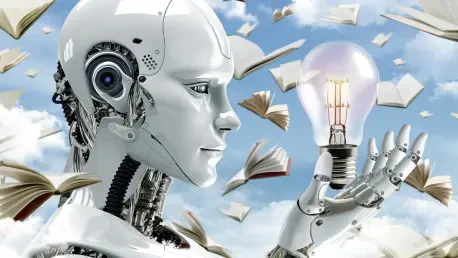A decade from now, will our student success stories be written by intelligent machines? With the rapid integration of artificial intelligence in classrooms, educators face a new dilemmIs the personalization provided by AI sufficient to replace the need for human-driven motivation?
The Digital Learning Frontier
Imagine a high school student, Sarah, navigating an AI-driven educational system tailored to her unique learning style. As she progresses through customized modules, her academic performance flourishes. However, Sarah increasingly feels detached from the traditional school setting, raising an essential question—can AI truly address the motivational needs of students, especially adolescents, without compromising their sense of belonging?
Significance of Balancing Personalization and Motivation
Educational institutions today grapple with delivering personalized learning experiences to meet each student’s distinct needs. This demand comes amid a broader societal shift toward digital transformation, challenging the traditional educational framework that has shaped generations. Moreover, there is a growing concern about maintaining essential human connections in this rapidly digitizing world, which plays a critical role in student motivation and engagement.
AI’s Impact on Educational Personalization
AI technology presents a remarkable opportunity to revolutionize education by creating individualized learning paths that adapt to each student’s pace and capabilities. Tools like adaptive learning platforms and intelligent tutoring systems are already helping students achieve remarkable academic improvements. However, AI faces limitations in addressing the complex emotional and motivational needs that students experience, often leaving gaps in the educational journey where motivation is concerned.
Insightful Perspectives from the Educational Sphere
Recent research illustrates AI’s effectiveness in enhancing educational experiences, yet highlights its inability to bridge the motivational gaps intrinsic to human interaction. Educational specialists, such as Professor David Yeager, point to the need for adolescent motivation to be driven by social interaction and respect within peer networks. Teachers and students alike share anecdotes of AI’s benefits and challenges, emphasizing the difference personal motivation and human respect can make in learning outcomes.
Crafting a Balanced Approach: Fusing AI with Human Elements
For educators, the task is to harmonize AI’s capabilities with strategies that foster deeper student motivation. Incorporating AI tools within frameworks that emphasize social belonging, such as collaborative projects and peer recognition, can create a more holistic and engaging learning environment. Schools like Alpha School and Khan World School exemplify successful integrations, demonstrating enhanced academic achievements coupled with a strong sense of student involvement and motivation.
Envisioning a Future Where AI and Human Insight Coalesce
In the future, the potential to customize learning experiences through AI will likely continue to develop. Lessons from the past have shown that true educational transformation requires integrating technology with nurturing environments conducive to social development and peer respect. Educators will need to work towards creating a landscape where AI enhancements align with students’ social needs, enabling the next generation to thrive both academically and socially.
Ultimately, while AI brings unprecedented personalization to education, it is the blend of cutting-edge technology with meaningful, socially supportive environments that truly empowers students to learn, engage, and grow within their communities.









